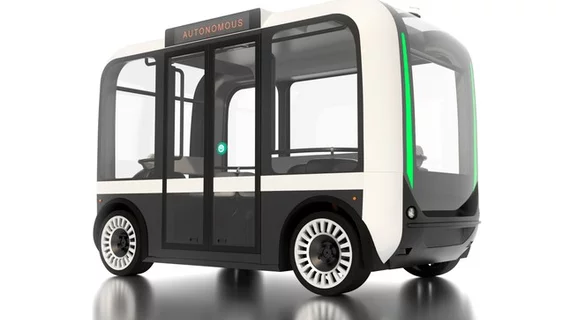Mayo transporting COVID-19 tests in autonomous vehicles
Mayo Clinic Jacksonville in Florida is relieving overstretched hospital workers by toting medical supplies, including COVID-19 tests, in driverless shuttles.
The medical center is testing the service through a partnership with the Jacksonville Transportation Authority (JTA), the autonomous transport service supplier Beep and Navya, a France-based company specialized in autonomous driving systems.
The program launched March 30 with a fleet of four vehicles in full autonomous mode—no attendants aboard—to move COVID-19 test kits from a drive-thru testing site to a processing lab on Mayo Jacksonville’s campus, according to a news item posted by Mayo.
Kent Thielen, MD, the CEO of Mayo Clinic Jacksonville, says the ability to think innovatively during the COVID-19 pandemic has strengthened all stakeholders, not least with its demonstration of intra-community collaboration.
“Using artificial intelligence enables us to protect staff from exposure to this contagious virus,” Thielen says. Meanwhile, he adds, using cutting-edge technology “frees up staff time that can be dedicated to direct treatment and care for patients.”
To read the rest and view photos and a video posted by Mayo Clinic Jacksonville, click here.

